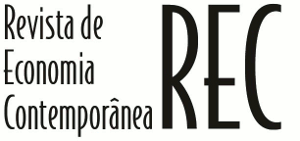ABSTRACT
This study aims to assess wage and skill premium responses to international trade in Brazil, determining different local specialization patterns with municipal data. We followed the theoretical model developed by Venables and Limão, who state that distance is a non-neutral variable in determining trade patterns. We used Chiquiar’s empirical model, which includes pooled regression with microdata and feasible generalized least squares in three steps. Selection bias and omitted variable biases were evaluated based on Redding and Schott and Oster. Results show that wage and skill premium responses to international trade are heterogeneous and depend on the geographic location. International trade seems to help reducing interregional inequalities in Brazil. However, it seems to intensify inter-skill wage inequalities in more distant zones, like Midwest and North Brazil. Thus, the reduction in income inequality due to a greater trade liberalization is not homogeneous in all regions of this developing country. Therefore, policies that geographically spread the benefits of international trade within Brazil would have to consider the occurrence of these regionally heterogeneous responses.
KEYWORDS:
Specialization zones; input prices; distance; municipalities; wages

 Thumbnail
Thumbnail
 Thumbnail
Thumbnail
 Thumbnail
Thumbnail
 Thumbnail
Thumbnail
 Source: Authors’ elaboration.
Source: Authors’ elaboration.
 Source: Authors’ elaboration.
Source: Authors’ elaboration.
 Source: Authors’ elaboration.
Source: Authors’ elaboration.
 Source: Authors’ elaboration.
Source: Authors’ elaboration.